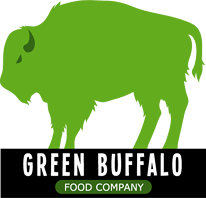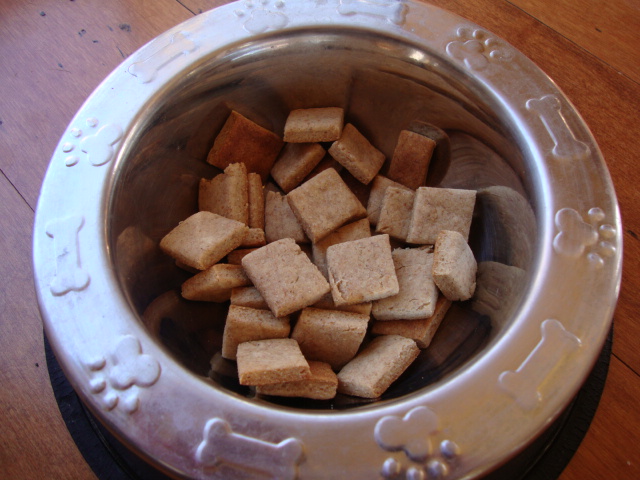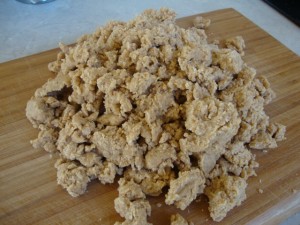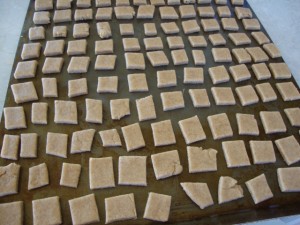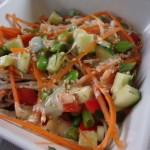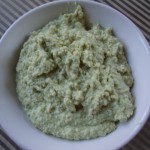So how green is your garden? Right now, ours is pretty white . . . and brown. It was certainly a nice surprise when Green Buffalo Food Company asked me to review one of their fresh produce boxes, delivered right to my door, no less. I’ve mention GBF before and how their box of organic fruit and veggie goodness had saved me (more than once) when it came to making dinner. GBF, based in Fort Collins provides locally-grown, certified organic fruits and vegetables to homes in Northern Colorado. (To see if your zip code is within their delivery routes, click HERE). You can opt for weekly or every-other-week delivery, choose from several different sizes of orders, AND customize your order, which takes the mystery out of that “mystery vegetable” that many CSAs include in their orders.
Recently, Grant Farms, one of the country’s largest CSAs, located north of Fort Collins, filed for bankruptcy and left thousands of its customers without their produce. A few years ago, myself and two other neighbors shared an order from Grant Farms and after one season, we decided that not only was it too expensive, but we always ended up with an unbalanced box of produce. I love kale, but even I can’t go through 5 bunches of it in a week! I love the idea of customizing my fruit and veggie order so that I know exactly what I’m getting—and we support a local farmer in the process. Not only that, it’s delivered right to my door.
I was given the option, via email, to customize my box, but I was pleased with what was already on the list. I received GBF’s Fresh Front Range box:
Gorgeous, huh? This box, a mix of both fruits and vegetables, is $33.99. I received: (all organic)
2 Cameo apples
2 Red Delicious apples
2 large avocados
1 lb bag baby carrots
1 bunch cilantro
3 kiwi
1 bunch leaf lettuce
2 red onion
3 Navel oranges
2 green bell pepper
2 lemons
2 (delicious!) heirloom tomatoes
As always, I was impressed with the quality and size of the produce. It can be difficult to find organic produce in stores that are not half the size of conventionally-grown produce, and frankly, ugly as hell. No homely runts here.
Everything is packaged carefully and in the summer, you can even expect ice packs tucked inside to keep the produce fresh. Green Buffalo also strives to live up to their name by committing themselves to being eco-friendly by recycling their shipping cartons, having efficient driving routes, and composting any unusable produce to The Growing Project. They are also committed to making the community a better place by donating leftovers to the Larimer County Food Bank.
Green Buffalo Food boxes start at $24.99 for The Mini. A typical box includes 2 apples, 2 avocado, 1 head of broccoli, 3 bananas, 1 carrot, 1 grapefruit, 2 pears, 1 leaf lettuce bunch, and 3 baby bok choy. And don’t forget, you have the option to change anything in this box, as well as add anything, ala carte style! GBF has eight different box options to choose from, so you’re bound to find one that fits your needs.
I also received a one-page newsletter with recipes, specials of the week, and other veggie news. There are no upfront costs, no membership fees, no cancellation fees, or contracts to sign. You are only charged on the day of delivery and you can cancel or make changes to your order anytime up to 2 days before your delivery date. You can Get Started and easily maintain your account online—it’s that easy!
Green Buffalo Foods have been such a pleasure to work with and I wouldn’t hesitate to recommend them. I think we all know how important fruits and vegetables are to our diet—especially organically-grown ones, and GBF really takes out the guesswork. Check out their great blog for recipes and much more. Also, be sure to visit their Facebook page for updates and contests!
